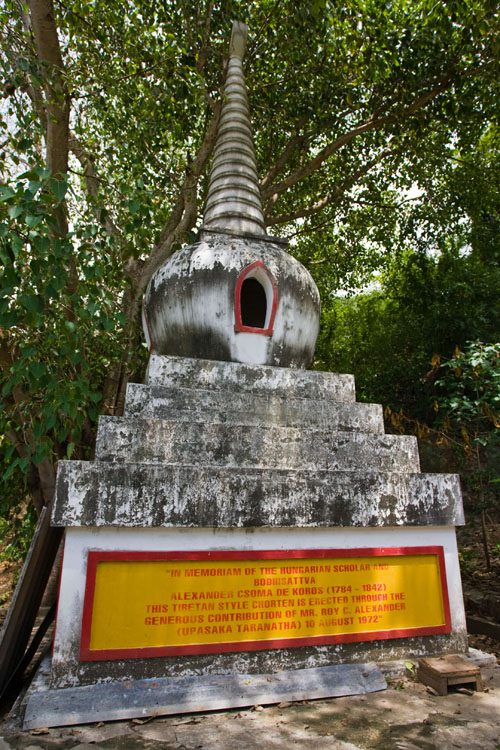The name of Alexander Csoma Kőrösi is familiar to many people in Asia. The memory of the linguist is preserved on plaques in places he has previously visited, such as Aleppo, Tehran or several towns in India. But there are also places where Kőrösi has never been, yet his admirers remember him.
In Vietnam, in Vung-Tau, a stupa is held to commemorate the Orientalist. In 1972 the stupa was built under the intervention of Rudolf Petri, a monk and professor at the Alexander Csoma des Körös Institute for Buddhology in Budapest.
Kőrösi, born in Transylvania in 1784, studied in Nagyenyed and Göttingen. He had already formulated the idea of visiting the Hungarian homeland back in his university years. In 1819 he cut his way to head east by already speaking 13 languages. He first traveled to Istanbul via Bucharest, from where he had to leave quickly due to the plague epidemic, and he wanted to settle in Egypt to improve his Arabic language knowledge. However, the plague epidemic in Egypt caught him up, so he had to leave soon. He eventually reached Zangla on an adventurous journey, where he spent nearly a year studying the Tibetan language.
He continued his journey, spending three years in Kanam and five years in Calcutta. During this time, he completed the Tibetan-English dictionary, the first in this field. By this time the Orientalist had spoken 20 languages.
On his way to Lhasa in 1842, he became ill with malaria. He died in Darziling, where he was laid to rest in a European cemetery. The stupa raised in Vietnam commemorates the memory and work of Alexander Csoma Kőrösi, although he has never been to Vietnam.


Published by